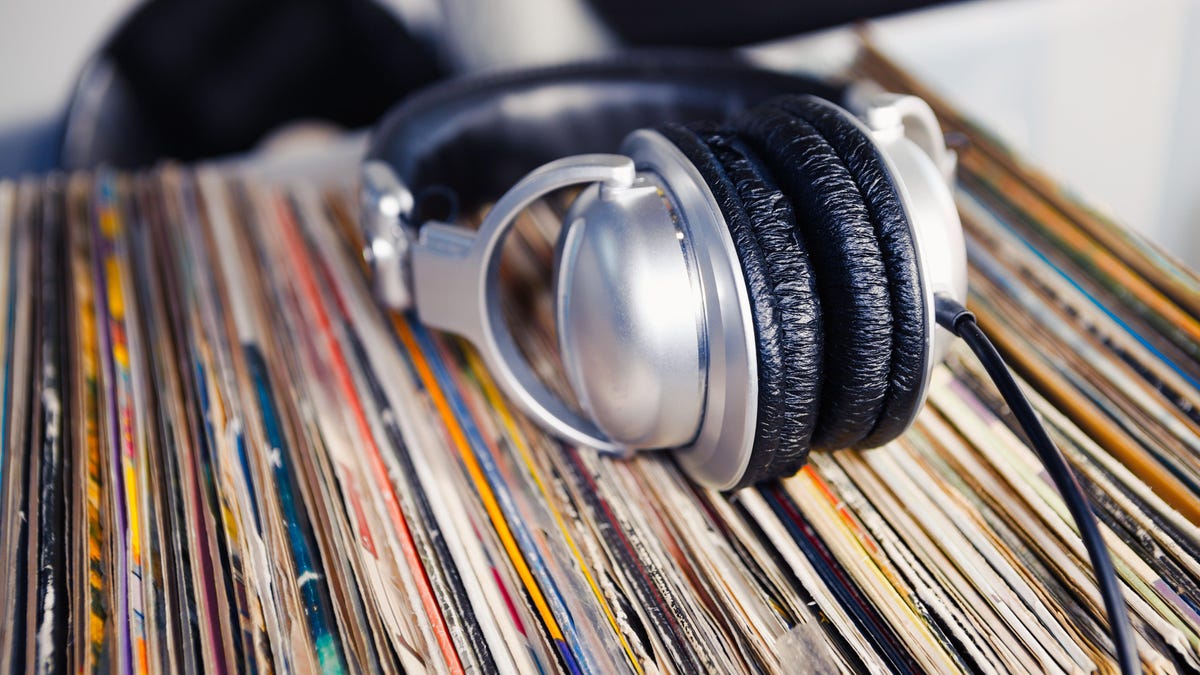What’s your favorite way to listen to music? Maybe you prefer a quiet room with some headphones or listening on vinyl. One thing is for sure, you don’t want to hear some compressed MP3 on your phone, right? Apple, Amazon, and Tidal offer “lossless audio,” claiming users can “hear the exact same thing” an artist created in the studio. However, it’s a myth that lossless audio objectively sounds better than MP3, and most users can’t hear a difference at all.
In 2014, Gizmodo asked readers if they could differentiate “lossless audio” from MP3 files. Over 380 readers commented on the story, many sharing their scores on a simple test. The average commenter scored 56%, which means it was basically random whether users could hear the difference. Though it was a small sample size, it confirms what others have found.
The main difference between the lossless audio and MP3 is file size. “Lossless” means it’s the same size as the original track created in the studio, and it’s usually stored as a WAV file. The problem is these files are large and hard to share on the internet. MP3s were created to address that back in 1987, compressing larger files into their most important parts.
“Compression is designed to throw away all the data which humans can’t hear properly,” said Tony Churnside, a BBC radio consultant with a PhD in Audio. “Ideally, no one can hear these details that get thrown away, but some people will say you can.”
Churnside uses lossless files for his technical work in audio production, but the reasons are more complex than just because it “sounds better.” Audio engineers work very hard to ensure your MP3 sounds just as good as the original WAV.
“You work with audio formats that are a far higher quality than anyone really could tell. But that’s because you’re doing mathematical processes, signal processing to those sounds, and that can lead to degradation,” Churnside said.
Even if you are listening to lossless audio, your music is still getting compressed if you’re using Bluetooth. Recent trends suggest that 68% of consumers use Bluetooth headphones, such as Apple’s AirPods which have skyrocketed in popularity. Bluetooth works by compressing your audio, often poorly, degrading your audio quality no matter what it started as.
Lossless audio is not worth the trouble for most listeners, but it’s still held up as a gold standard. Spotify has been highly criticized for promising lossless music streaming three years ago, and it’s still nowhere to be found. Perhaps Spotify decided it wasn’t worth the trouble.
Origins of The Myth
The belief that MP3 files are inferior stems from the idea of compression. An MP3 file is smaller than a WAV file, so people assume they have less detail and a less rich sound. The term “lossless audio” also casts a shadow on MP3s, which sound like they’ve lost something. Technically, they have lost a lot of data, but compressed files are pulling away frequencies that humans largely can’t hear.
Apple started offering Lossless Audio at WWDC 2021. It was likely doing this to steal some audiophiles back from Amazon Music, which added lossless music back in 2019, or Tidal, which was the first to offer it in 2014. However, it’s unclear if Apple’s marketing, which tends to bend reality, was effective at all.
“The soul and life of the mix is sitting in the extra bits of data that are stored in the lossless file,” said a mastering engineer in an Apple press release in 2021. “Having the ability to convey the music to the listener at its highest quality is the end goal of what I work for every day.”
It’s a beautiful sentiment, but Apple and Amazon’s “Lossless Audio” is actually compressed as well. The files they use are called ALAC or FLAC files, and they’re better quality than MP3 but are slightly larger files. When they’re played back, an algorithm returns the file to its original size to play at “full quality.” But mind you, all of these quality changes are imperceivable to average listeners.
I’m sure some audiophiles can tell the difference between these music files, or claim to, but they likely have to be hunting for it. At that point, are you even listening to the music? I think one Gizmodo commenter put it best under this 2014 article when they said:
“Reminds me of the difference between a music lover and an audiophile. A music lover listens to music with his sound system. An audiophile listens to his sound system with music.”
Why It’s Pervasive
The lossless audio superiority comes from an honest place. People want to get the most out of their music systems, probably because they are music lovers at heart. It’s part of the ritual of music, such as listening to vinyl records or having special headphones. It might be a little difficult, but it’s a labor of love.
However, part of this is simply marketing. Audiophiles swear by a lot of things, like gold-plated cables, non-oxidized copper wires, or even lossless audio. Apple and Amazon are selling this feature to convince you their streaming service sounds the best, but that doesn’t necessarily make it true.
Churnside says you can do a few simple things to meaningfully improve your audio experience. Using high-quality wired headphones is one part of it, but having a quiet, calm listening environment will drastically improve how much you can hear.
“If you’re listening on the subway going to work, it’s going to be very different than sitting in a quiet room at home when there’s no noise at all,” said Churnside.
If you’re hunting for the best sound experience, your MP3 music is probably just fine. Less is more here, and your listening equipment and environment have the biggest impact on your audio experience.

